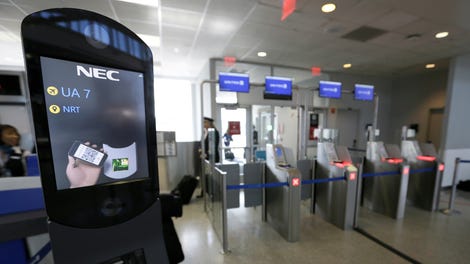TSA Is Testing Face Recognition at Airport Security Checkpoints in Las Vegas Now

Las Vegas NV Sept 2 2019
The Transportation Security Administration will use face recognition technology at security checkpoints at McCarran International Airport in Las Vegas. The good news is you can opt-out. The bad news is that the program in Vegas furthers the TSA’s ongoing efforts to expand biometric technology more broadly.
According to a document from the Department of Homeland Security about the initiative, the face recognition pilot will help the TSA gauge its “ability to compare the passenger’s live facial image at the checkpoint against an image taken from the passenger’s identity document for passengers who opt to participate.”
To do this, checkpoints will have a camera-equipped Credential Authentication Technology device that’s meant to validate a person’s ID as legit, take an image of said ID, and snap a picture of that person’s face. It’ll then compare those images to verify a person’s identity.
With its face recognition technology, TSA will collect a dumb amount of data about participants, including their ID information including where it was issued, date of travel, date of birth, and multiple photographs that include real-time images, among other personal information. That information will be stored on a TSA encrypted hard drive “and retained for subsequent qualitative and quantitative analysis” by a team with the DHS.
The document claims the data will be deleted no later than 180 days after the DHS receives it. It further claims that the hand-off of this data will occur in-person at McCarran, in the Washington, D.C. metropolitan area, or “by certified mail or courier.”
The new pilot follows testing of biometric verification technologies at other airports, including a similar face recognition program at Los Angeles International Airport last year and fingerprinting for TSA Pre travelers at Hartsfield–Jackson Atlanta International Airport and Denver International Airport in 2017.
In a statement about the initiatives last year, TSA Administrator David Pekoske said that the agency “hopes to increase security effectiveness and stay ahead of the threat.” Efficiency is also cited by the TSA as a motive, because—to be fair—absolutely no one enjoys standing in long-ass security lines.
But while TSA swears up and down that it’ll make it clear that the program is optional, Jay Stanley, a senior policy analyst with the ACLU’s Project on Speech, Privacy, and Technology, argued that if the system sees a wider rollout, it will effectively “socialize people to accept face recognition and normalize the technology, inevitably be subject to mission creep, and expose people to the judgments of unreliable and biased algorithms.”
Evan Greer, deputy director of digital rights advocacy group Fight for the Future, told Gizmodo in a statement by email that facial recognition technology “is so dangerous that it’s generated widespread backlash from across the political spectrum. Even in this deadlocked Congress there is growing bipartisan support to rein in this invasive surveillance.”
“It’s outrageous that TSA is continuing to expand its use of biometric scanning at a time when there is widespread consensus that we need to at the very least pause the spread of this tech so we can have a meaningful public debate about what role, if any, facial recognition surveillance can play in a free and open society,” Greer added.
The DHS appeared to be heading off potential privacy critics by noting that signs will be posted about the devices at McCarran and “hand-outs will be available so that individuals may make an informed decision about whether or not to participate.” It is my humble but informed opinion that you should not.



